|
Around here, nothing is permanent. I mean here at Harrelson Trumpets - the shop is awash in a neverending flood of new designs, of upgrades, of improvements to our own processes and to the trumpets that come out of it. When something slows us down, we find a way to change it and speed it up. If a part can be streamlined to fit better, the design is changed immediately. I don't know any other place that can function at such a feverish pace - where a hitch is identified, a solution is devised, and the new version is implemented often within a day or so. It's a fricking Galopagos Island of trumpet, where evolution happens at the speed of light and only the strongest and most robust designs last any length of time. And that is honestly how this company was able to find its way into a very rigid industry, rife with tradition and expectation of how a trumpet should be, and still survive and thrive with its new trumpet approach. Each step, each improvement pushes resolutely towards these overarching goals - trumpets that are easier to play and easier to manufacture, that can match their sound to the player's vision, and that include strokes of personality to make them unique to each individual. This dedication to efficiency of design, streamlining production, and constant evolution is also what allows this tiny shop to keep up (barely) with the massive slew of orders and interest we receive for trumpets and parts. It's an inspiring environment to be around, and I highly recommend stopping it for a tour sometime. The kind of place that truly makes you feel that anything is possible, that ideas can turn into reality if you just find the right tools and take the time to learn them.
0 Comments
 I have definitely fallen off the wagon of blogging. And I think it's time to pick up the cart again. So although this may be a slightly meandering post, I've decided to air what's on my mind in an effort to keep a more faithful blog presence here. A topic that has been plaguing me lately is the relationship between a person's mental state and musical performance: The way that your own feelings/stresses/awareness manifest themselves in the way you embody your music. Actually, this is such a gigantic topic that I'm sure I have no hope of successfully exploring it within these confines. But I can still attempt to record a few observations of my own fledgling experience of mind and music. As a school exam to qualify for a master's degree, I was once asked to define my musical philosophy. As with most students, I was fully prepared to explore such a nebulous question with equal parts academic jargon, earnest passion, and bullshit. But I ended up finding an answer I rather liked - a sort of Maslow's hierarchy of musical needs. It went something like this: As a trumpet teacher, I aim to make students first into highly-functioning people, capable of taking care of themselves. Next, I try to help them successfully interact with their peers and the world around them. The following level hones these talents into collaborative communication with musicians around them, seeking a willingness to listen, adapt, and respond specifically in musical performance situations. The final and least important tier of this philosophy is to address trumpet technique specifically, in order to increase their facility on the instrument. I think this approach rather took my instructors by surprise, as I spent scant time actually talking about the trumpet and its myriad of hidden traps for players. However, that hazy and hastily-cobbled schematic has actually rung more and more true for myself personally as time has gone on. My most marked improvements in trumpet technique, tone, creativity, and consistency have come at times when I am simultaneously experiencing great personal growth or freedom or awareness. Now, I know that this is a bit of an exaggeration in some ways: I can't claim that personal safety or happiness will take you from a beginning honker to a dexterous trumpeter swan. But I do think that at the boundaries of development - where you are moving from learning notes to stringing together melodies - or from memorizing complex scales to implementing them spontaneously - that there is a key relationship between the ability to relax and the ability to perform. And this is all connected at least in part to how comfortable or confident you are in your own shoes. I'm sure as well that these ideas are nothing new to the artistic community or indeed any performance community, from sports to public speaking to piloting an aircraft. It seems that in all of these arenas, some of the most successful performers are ones who are able to step outside of themselves in a way; to have completed enough technical preparation and be in the right mental state to push past the details of reality and access a sort of higher level where all of the performance elements seamlessly combine into a cohesive achievement. Before you cast labels of hopeless hippiedom in my direction, I'll reassure you of the many performers who focus intensely on their own mental state when seeking to push their execution even higher. Indeed, the framework of Olympic running coach Joe Vigil's training regime was based around achieving a positive cognitive state first and foremost. His walls were covered with self-training goals such as "Practice Abundance by Giving Back," "Improve Personal Relationships," and "Show Integrity to your Value System." He believed you needed to become a strong person before becoming a strong runner.* In short, I just wanted to call attention to the mind's incredible ability to reorganize itself in fascinating ways. As many a writer's block victim can attest, the effort of moving away from the problem at hand and focusing on solving other life dilemmas can often be a springboard to discovering powerful artistic ideas - or indeed executing that next level of trumpet triumph. *Paraphrased from Born to Run by Christopher McDougall Check out a great Israeli R&B/soul singer I have been listening to - Ester Rada, Lose It: As a fledgling musician beginning to get my feet wet, I have been spending some time lately musing about the line between live and recorded music. Creating that next album often seems to be the big picture goal of many artists, but the most raw, real, in-the-moment performances are - almost without exception - live. At the same time, there is a slew of earth-shaking talent whose sounds have never been recorded! (This is growing smaller all the time with recent technological advances and social media, but still - how many killer musicians do you know who rarely or never enter(ed) the studio?) On the other side of the sound wave, audiences in general are less willing to fork up the time, $, and logistical effort to come out and listen in person than to press play on their device of choice. So where do we focus our time and energy to best reach those people our music will resonate with? I think the first question has to be: What qualities are unique to each performance situation - live vs recorded? These may seem pretty obvious to me, but I remember posing a similar question as a TA to college-level Music Appreciation classes and being met with rather mundane results. Answers ranged from "You can't see people in an audio recording" to "The bass is quieter in my iPod" to "I might not remember a live performance as well." Ok, generally true. But I'm more talking about the link between musician and listener, between music-er and music-ee, and how that changes in each case. Because when we perform live, we tend to gain inspiration from our audience, and on some level what we put out is tailored to how we feel as a result. The effect on the crowd is palpable too, when they can see and feel the regret or rage or jubilation pouring off the stage. When they transition from observing to entering the experience themselves, the music can take on a life of its own, as the listeners' mood and musicians' enthusiasm rocket off of each other and launch the moment into an unplanned orbit. With a recorded piece of music, there is separation between the artist and the interpreter. First, the very process of recording can sometimes dilute the expression. When the necessary repetition, lack of audience, and pursuit of perfection combine together in studio, the result may not be anything like the lightning-in-a-bottle harnessed live. A recording is also of course a static entity: the goal is usually to put forth a final, finished product that is a close representation of what would be performed on stage. And yet... there is an inherent singularity in recorded sound too. While the recording itself will not change (except for the unavoidable deterioration over time), these captured sounds will absolutely allow changes in interpretation. Someone may hear a heart-wrenching ache today, but in two years hear unbridled triumph in that very same sound. So as performers, we are constantly weighing the benefits of instant connection vs an enduring platform that can evolve over time. (This is starting to sound like a dating blog.) But when and why do we choose to pursue each of those goals? I guess my current perspective is that the live performance is the end goal - the most authentic way I know to express those musical thoughts that I can't put into words. The recording is a way to try to replicate the most potent live experiences and disseminate them to a greater group of people in hopes that someday they will be motivated to access that full experience with me. (I guess I should cut off the dating comparison, because this would imply we should get married so that we can convince other people we would be fun to take out on a date...) Switching gears here, this debate over live vs recorded sound affects instrument manufacturers too! Just as guitar players would use different amps when playing in a small studio vs a large concert hall, Harrelson also builds trumpets with varying levels of focus, feedback, and projection. Many of these differences occur in the bell, where the sound wave is amplified outward from the horn. Feel free to check out all of the options available for different musical needs. http://whyharrelson.weebly.com/jasons-blog/understanding-bell-choices To wrap up this wandering entry, I've been checking out some of the iconic live performances from SNL lately. Nirvana, Simon and Garfunkel, and the White Stripes have all created some pretty unique experiences, but this gem by Patti Smith particularly stood out to me. Well this is certainly long overdue! But I couldn't resist the opportunity to write about all of the inspirational experiences one could have at the most recent ITG conference in King of Prussia, PA. This was my 2nd ITG conference, but my first one while at Harrelson. What I took away from it: the trumpet is certainly alive and well in the world, and there is a community of trumpet players who are eager to share their experiences along their journey and help you along your own. So many of these talented players would give you the shirt off their back if it helped you to succeed! I definitely recommend checking out these conferences if you ever have the opportunity. What an eye-opener to the artistry that is all around us, both expected and unexpected! We met a never-ending stream of trumpet players! The most fascinating part was to see the ways that personalities were reflected, or even contrasted by, individual trumpet styles. You can tell that some people are more at ease with themselves when they are playing an instrument than when they are speaking to you. With others, performance quirks remind you of a conversational style or a general outlook that you have perceived from the person. Regardless, we all reveal pieces of ourselves when we perform, and these are the glimpses that motivate me to open my ears even wider and try to connect the dots. Everyone's mind, body, and experiences are different... ... which is why we take the time to create so many options to fit a trumpet player to her ideal horn. :) See you in Ohio next year!
I thought I'd take this chance to say hi to all you trumpet players out there! I'm Christine, the one you probably talk to if you ever call or email us at Harrelson. I'm mostly here in the office in Minneapolis, figuring out solutions to trim questions and shim questions, stamping and clamping, shipping and quipping. Generally, I do everything I can to let Jason focus as much time as possible on trumpet-building and blowing our minds with his latest innovations. So feel free to drop me a line if you ever have questions or ideas! I also wanted to call your attention to a fantastic event coming up this week at Messiah College in Mechanicsburg, PA: The National Trumpet Competition! Jen and Jason will be there to represent Harrelson Trumpets and support these talented players. (A big shout out to the entire University of Colorado trumpet studio who will also be there to compete and take in the many inspired performances!) Trumpet ensembles, solos, and Jazz performances will be streamed live all weekend, so I highly encourage you to check out some of the best and brightest in the up-and-coming trumpet scene! https://www.nationaltrumpetcomp.org/pages/page.asp?page_id=302918 The extreme mental pressures of a competition like this have always fascinated me, and they were brought even more sharply into focus by a series of talks I saw last year comparing musical performance to sports psychology. We are always trying to find that sweet spot where our minds are completely in the moment, yet we also want to execute every technical aspect flawlessly. We all strive so hard to make our performance adhere to a prescribed set of standards, yet at the same time we try to infuse our own human experience and emotion in order to make the performance our own. It's a constant battle of intention and focus that can easily become overwhelming if we allow ourselves to become consumed by it. It seems to me that this juxtaposition becomes even more drastic in the jazz realm, where everyone learns from the masters but has an intense desire to create their own sound, a sound that is identifiable yet new and hip. I am definitely still learning to find my own voice when I perform, so I don't have a real solution to these conundrums. However, I can share with you the immortal words of Tower of Power: Sometimes hipness is what it ain't. This blog post was inspired by Jim Weglewski, who likes to quote Tower of Power at board meetings. |
Christine Palmer
I work here at the Harrelson workshop- talking to trumpet players, finishing and assembling trumpet parts, and loving every moment of it. Archives
January 2017
Categories |

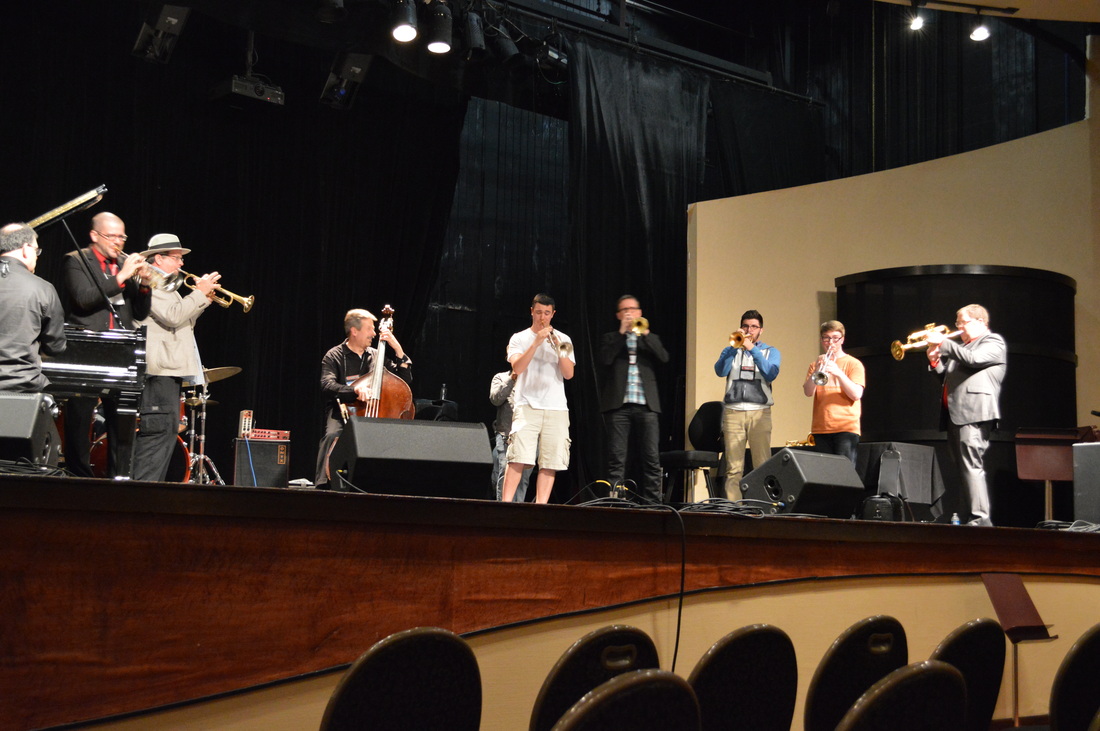
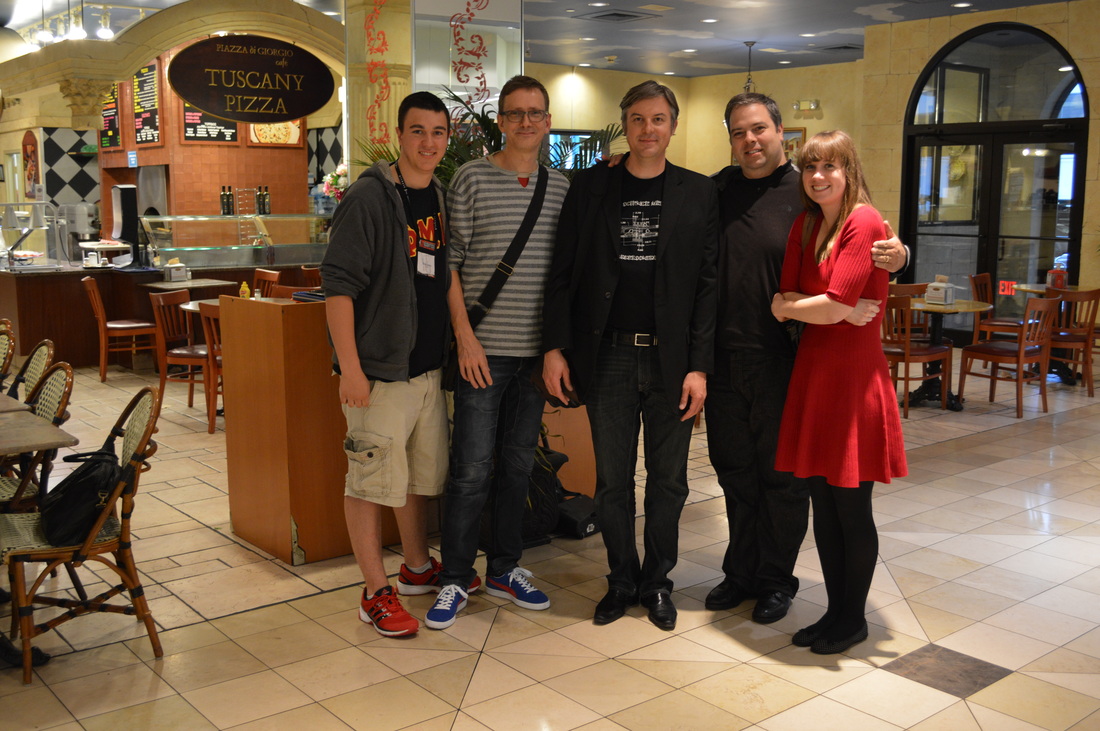
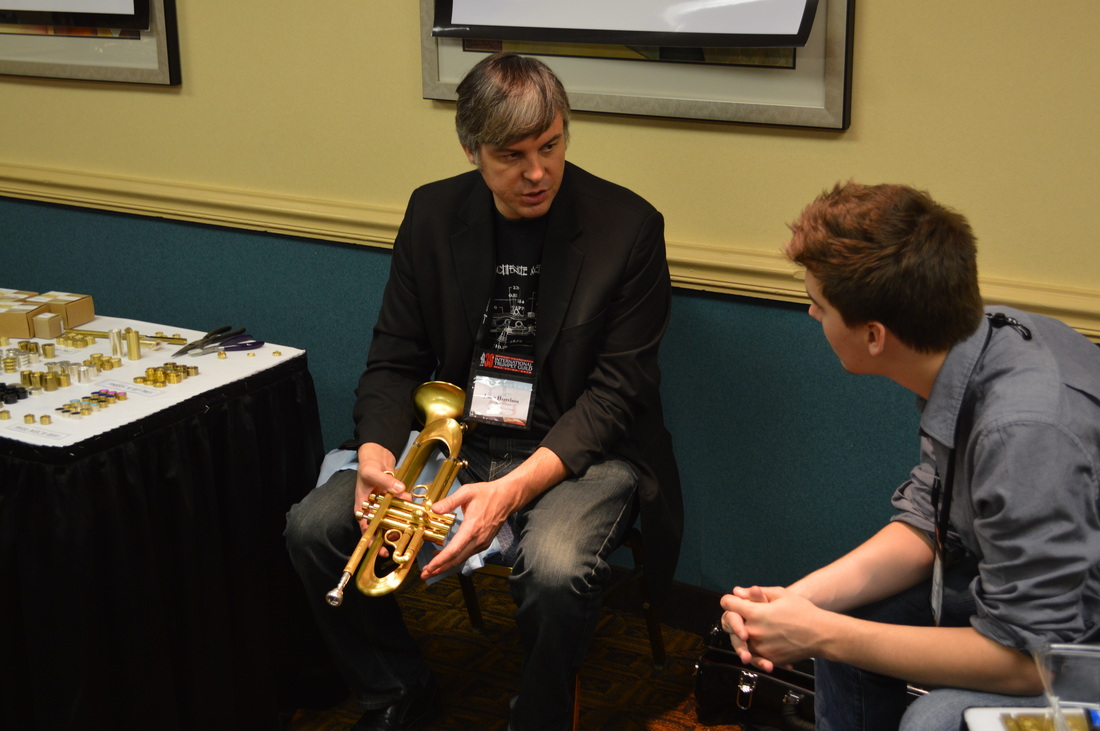
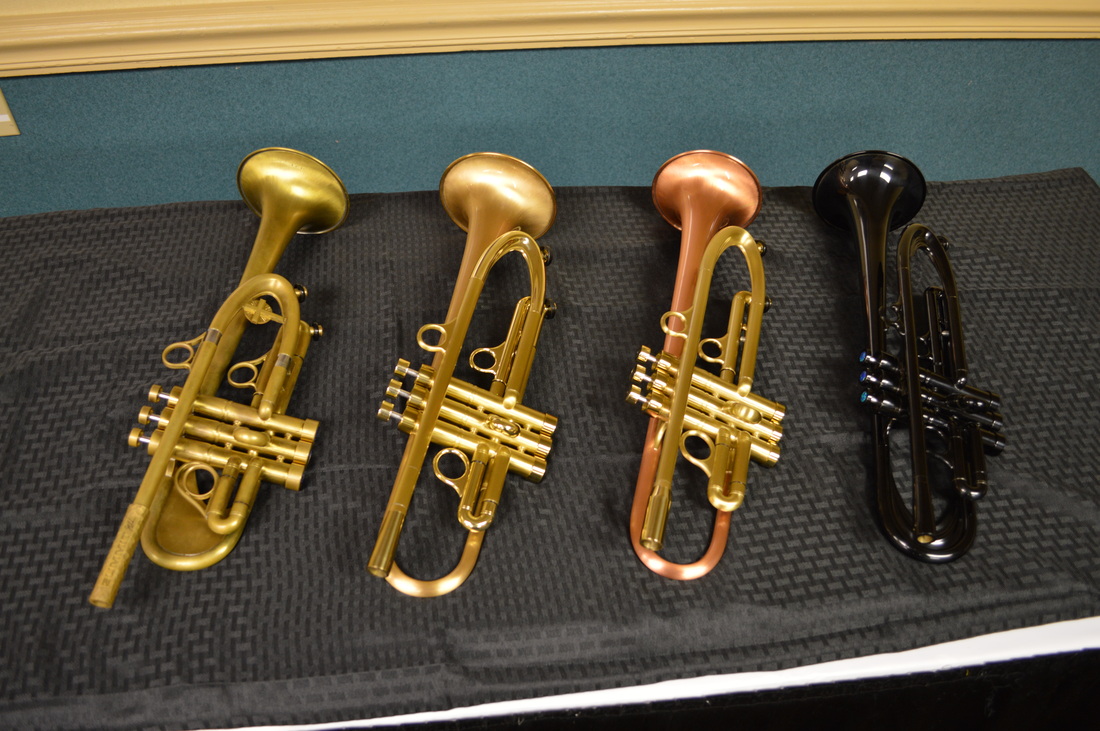
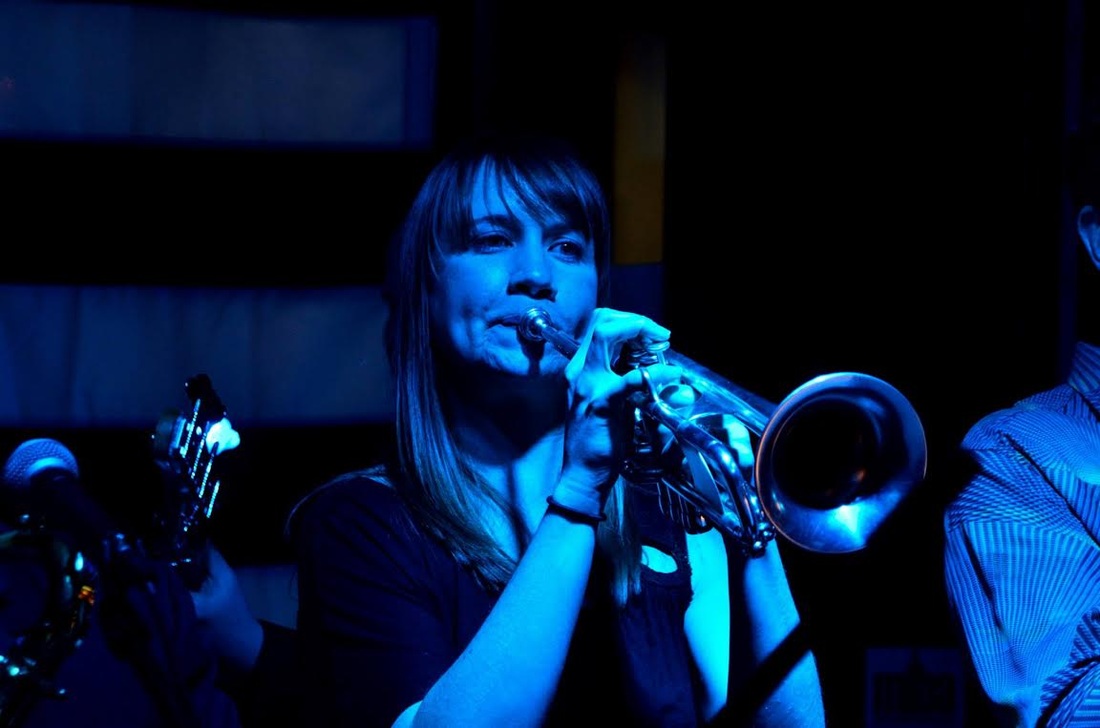
 RSS Feed
RSS Feed